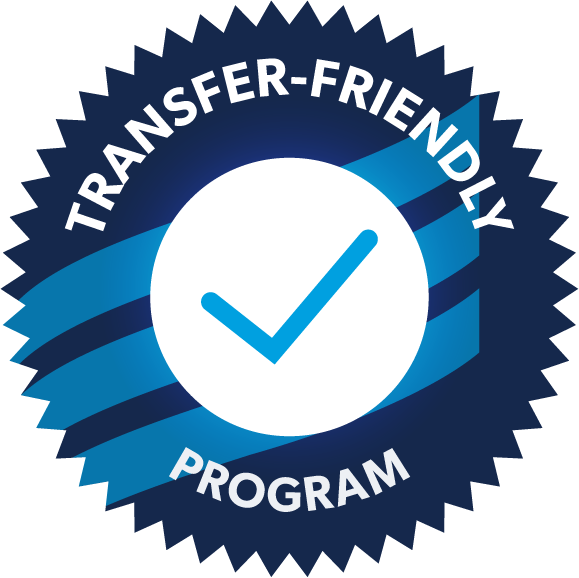Transfer-Friendly Program
Our transfer-friendly program lets you bring in up to 60 transfer credits from prior coursework or professional experience. This means you can graduate faster without sacrificing the quality of your education.
UW Stout’s Bachelor of Science (B.S.) in Criminal Justice & Rehabilitation prepares you to recognize the factors related to criminal justice policy and practice. It incorporates the tenets of rehabilitation for the offender, as well as social policy amendments. The program prepares students for holistic participation in the variety of fields in the criminal justice system. The program focuses on critical thinking skills, interpersonal communication and public policy and practice in an ethical manner.
Become a certified Wisconsin police officer while earning your degree — an opportunity that's unique, both regionally and nationally. Our collaborative agreement with the nearby Chippewa Valley Technical College's Law Enforcement Academy meets the criteria of the Wisconsin Department of Justice, Bureau of Training and Standards and the Wisconsin Law Enforcement Standards Board. Credits from the CVTC academy apply to your bachelor's degree.
Hands-on, applied learning and individualized program advisement will prepare you to graduate in four years and pursue career opportunities in law enforcement, community corrections, adult and youth offender rehabilitation programs, court programs and correctional administration.
Graduate ready to meet the varied needs of offenders, such as mental health and substance abuse, and get them the treatment and resources needed to prevent re-offending. Our faculty of experienced criminal justice professionals will provide you with the education and training to:

Our transfer-friendly program lets you bring in up to 60 transfer credits from prior coursework or professional experience. This means you can graduate faster without sacrificing the quality of your education.
Use the Request Information form to receive a program summary and learn more about the B.S. Criminal Justice & Rehabilitation.
"I was given the opportunity to attend the Law Enforcement Academy while still enrolled at UW-Stout. This experience was great because of all the networking connections I made, and it put me one step ahead of many other students."
~ DeMarcus ZerothB.S. Criminal Justice & Rehabilitation
Take your education into industry and earn while you learn through UW-Stout’s award-winning Cooperative Education & Internship Program (CEIP) and other placements. Unlike traditional internships, our professional paid and pro bono credit-earning experiences connect you with leaders in your field, including state, county and city entities and regional research and advocacy groups, to ensure you’re set up for success long before you graduate. More than a third of Stout students accept positions after graduation with their internship employer.
Recent Internship Employers
Select Internship Position Titles
Upon the completion of the program, the student will (a) understand terms, operations, trends, and theories of criminal justice; (b) analyze the nature and causes of crime; (c) apply treatment techniques used within probation, parole, or prisons used to rehabilitate (i.e. alter attitudes, values, behavior) adjudicated persons; (d) apply theory and practice through an approved field placement. The graduate will be able to:
Development of the program objectives has been informed by stakeholder groups, employers, the Program Advisory Committee, and guided by the Academy of Criminal Justice Sciences Certification Standards for Academic Programs.
According to the U.S. Bureau of Labor Statistics, employment of probation officers and correctional treatment specialists is expected to grow nationally by 18 percent from 2010 to 2020, about as fast as average for all occupations (bls.gov/ooh/). Continued growth in the demand for probation and parole services will lead to new openings for officers and related career tracks. In Wisconsin and Minnesota, the employment of correctional treatment specialists is expected to grow by 10 percent to 14 percent until 2018 (careerinfonet.org).
As alternatives to incarceration, such as probation and restorative justice, become more widely used, the demand for correctional treatment specialists will grow in the region. According to the Wisconsin West Central Workforce Development Area Occupational Projections for 2008–2018, correctional treatment specialists will grow 10 percent, while the average increase across all occupations will be 3.3 percent (worknet.wisconsin.gov).
| Eric | Anderson | Criminal Justice Director | Chippewa Valley Technical College |
| Sara | Benedict | Dunn County Diversion Court Director | Dunn County |
| Kevin | Doll | Associate Professor; Program Director, B.S. Human Development & Family Studies | UW-Stout |
| Kevin | Drzakowski | Associate Dean | UW-Stout |
| Allie | Eckes | Student | UW-Stout |
| Brad | Erickson | Deferred Prosecution Coordinator | Dunn Co. Victim/Witness Assistance Office |
| Rick | Hollister | Police Chief | Menomonie Police Department |
| Kellie | Kamholz | Director | Positive Alternatives |
| Daniel | Kelsey | Chair, Counseling, Rehabilitation & Human Services Department | UW-Stout |
| Julia | Kraemer-Martens | Workforce Development Specialist | Minnesota Department of Corrections |
| Richard | Gee | Associate Professor; Program Director | UW-Stout |
| Lindy | Schneider | Transfer Coordinator | Chippewa Valley Technical College |
| Joseph | Strano | Corrections Field Supervisor | Wisconsin Department of Corrections |
| Jeffrey | Sweat | Professor | UW-Stout |